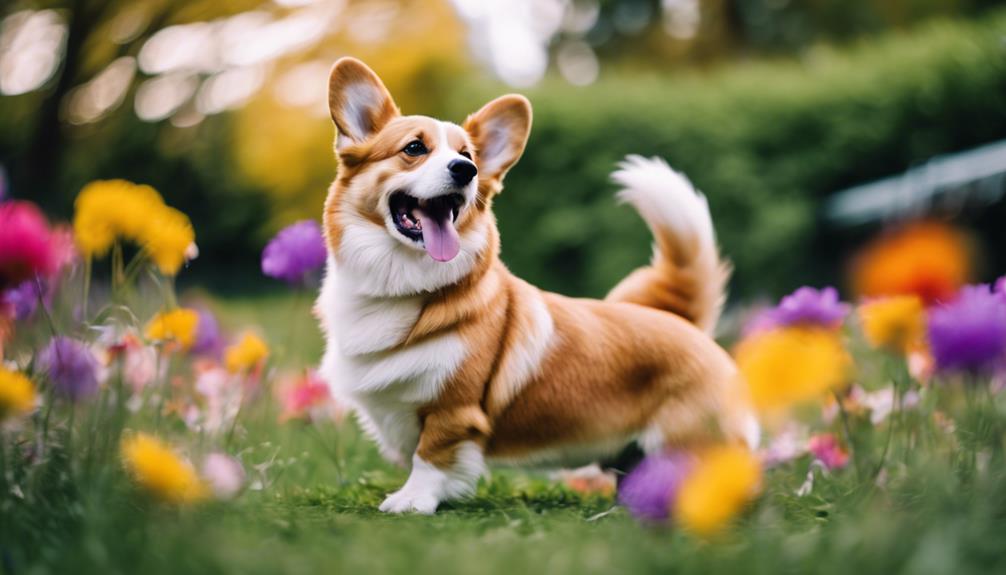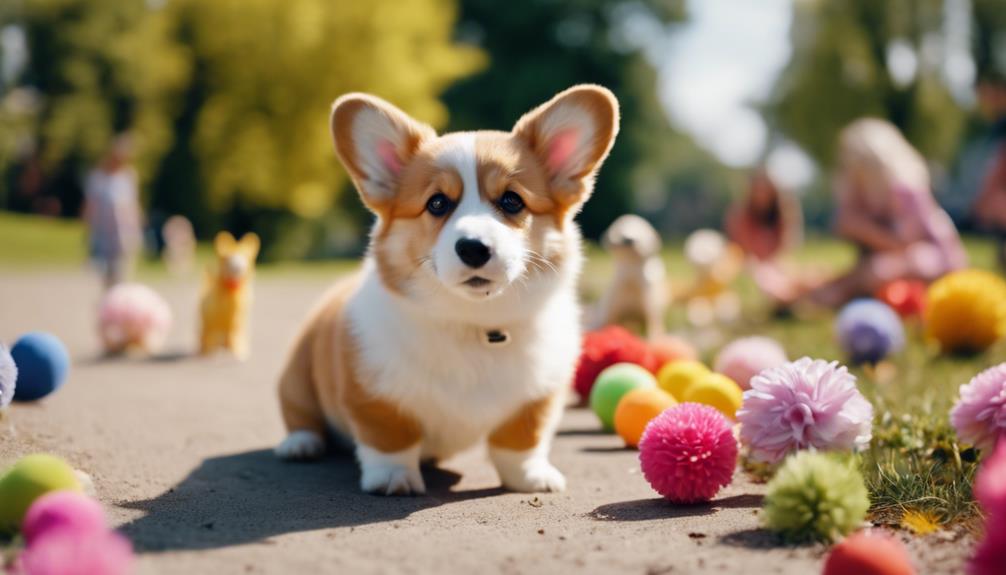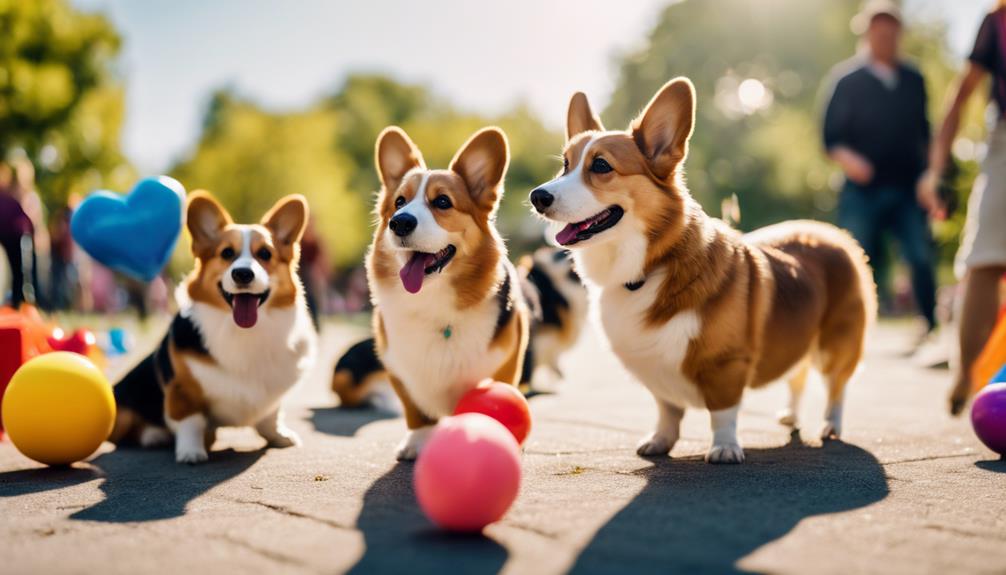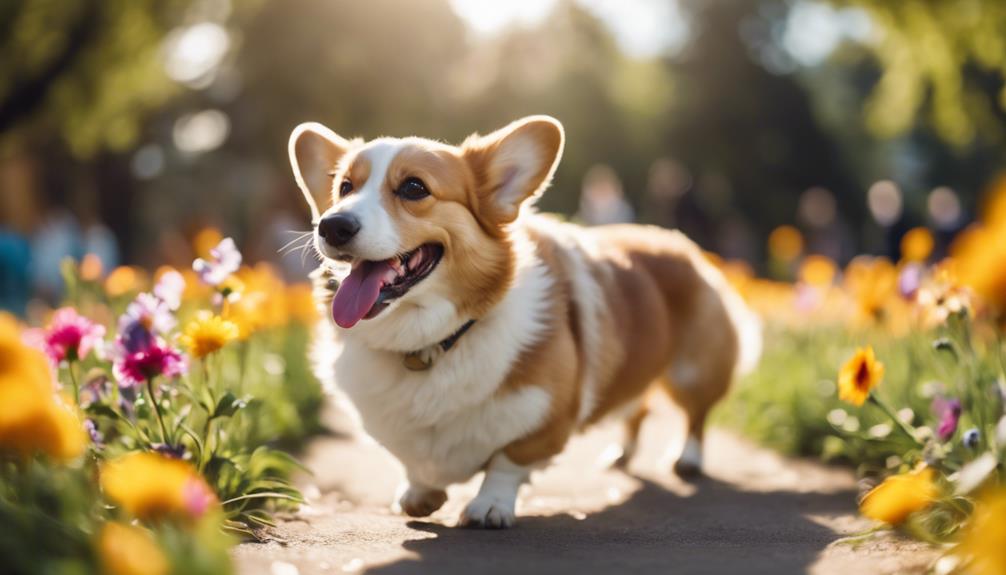Socialization is a critical aspect of raising a well-adjusted Corgi, yet many owners encounter significant hurdles that can impede their pet's development. Understanding the unique behavioral traits of Corgis is essential in identifying common challenges they face in social settings. By implementing effective early socialization techniques and positive reinforcement strategies, owners can foster a more adaptable and confident companion. However, navigating this process requires careful observation and adjustment of methods. What specific strategies can be employed to address these challenges effectively?
Understanding Corgi Behavior

To effectively socialize Corgis, it is essential to understand their unique behavioral traits, which stem from their herding ancestry and distinct personality characteristics. Corgis exhibit strong instincts, such as a natural tendency to herd and protect. Their breed characteristics include intelligence, loyalty, and a playful demeanor, which can influence their interactions with other dogs and people.
Key traits to consider are:
- Herding Behavior: Corgis may try to herd children or other pets.
- Social Nature: They generally enjoy being around others and can be friendly.
Recognizing these behaviors helps owners develop effective socialization strategies, ensuring Corgis grow into well-adjusted companions.
Common Socialization Challenges
Despite their friendly disposition, Corgis can face several socialization challenges that stem from their strong herding instincts and vocal tendencies.
One common issue is their fear responses, which can manifest when they encounter unfamiliar people or animals. This fear may lead to defensive behaviors, such as barking or growling, as they attempt to protect their territory.
Additionally, Corgis possess strong territorial instincts, causing them to become overly protective of their home environment. This can result in aggressive reactions toward perceived intruders.
To address these challenges, it is crucial for Corgi owners to understand these instincts and work on gradual exposure to various social situations, helping their pets develop confidence and appropriate responses in social settings.
Early Socialization Techniques

Effective early socialization techniques are essential for nurturing a well-adjusted Corgi, enabling them to thrive in diverse environments and interactions.
One effective method is arranging puppy playdates. These playdates allow Corgis to interact with different dogs, helping them develop their social skills and learn appropriate behaviors.
Additionally, enrolling your Corgi in socialization classes can be highly beneficial. These classes provide a structured environment where puppies can meet other dogs and people under professional guidance. During these sessions, they can experience various sights, sounds, and situations.
Positive Reinforcement Strategies
Positive reinforcement strategies are essential for encouraging desirable behaviors in Corgis, fostering a strong bond between the dog and owner while promoting a positive learning environment.
One effective method is using treat rewards, which can motivate Corgis to follow commands and engage in social behaviors. When a Corgi performs a desired action, immediately offering a treat helps reinforce that behavior.
Another useful technique is clicker training, which involves using a small device that makes a clicking sound to mark good behavior. The sound is followed by a treat reward, creating a clear association between the click and the desired action.
Group Play Opportunities

Engaging Corgis in group play opportunities plays a significant role in enhancing their social skills and facilitating positive interactions with other dogs.
Corgi playdates and group activities allow these intelligent and energetic dogs to learn essential social cues. During these interactions, Corgis can practice behaviors such as sharing space, taking turns, and responding to other dogs' body language.
To organize effective playdates, consider the following tips:
- Choose a safe, enclosed area for play.
- Ensure all dogs are vaccinated and healthy.
- Monitor interactions to prevent negative experiences.
These strategies help create a welcoming environment where Corgis can thrive, fostering their confidence and improving their ability to interact with other pets.
Monitoring Progress and Adjustments
Monitoring the progress of your Corgi's socialization is essential for ensuring effective training.
By carefully tracking behavioral changes, you can identify what techniques are working and which may need adjustment.
Regular evaluations allow you to modify your approach, optimizing the socialization process for your pet's unique needs.
Track Behavioral Changes
Tracking behavioral changes in Corgis during socialization efforts is essential for assessing their progress and determining necessary adjustments to training strategies.
Behavioral tracking involves observing and recording specific reactions to various social situations. This method helps identify socialization milestones, such as improved interactions with other dogs or reduced anxiety in public settings.
To effectively monitor progress, keep a journal of behaviors observed during training sessions. Note improvements or setbacks, and categorize these observations by socialization contexts, such as playtime or meeting new people.
Regularly reviewing this data allows trainers to pinpoint patterns and adjust approaches accordingly. By maintaining a clear record, trainers can celebrate achievements and understand areas needing further development, ultimately leading to a well-socialized Corgi.
Adjust Training Techniques
Adjusting training techniques based on observed behavioral progress is crucial for optimizing the socialization process in Corgis. As you monitor your Corgi's reactions to various social situations, be prepared to adjust expectations. For instance, if a Corgi shows anxiety around new dogs, consider reducing the intensity of social interactions and gradually reintroducing them.
Training consistency is key; establish a routine that reinforces positive behaviors while gradually exposing your Corgi to different environments.
In summary, successful socialization involves:
- Regularly assessing your Corgi's progress
- Adapting training methods to fit their comfort level

